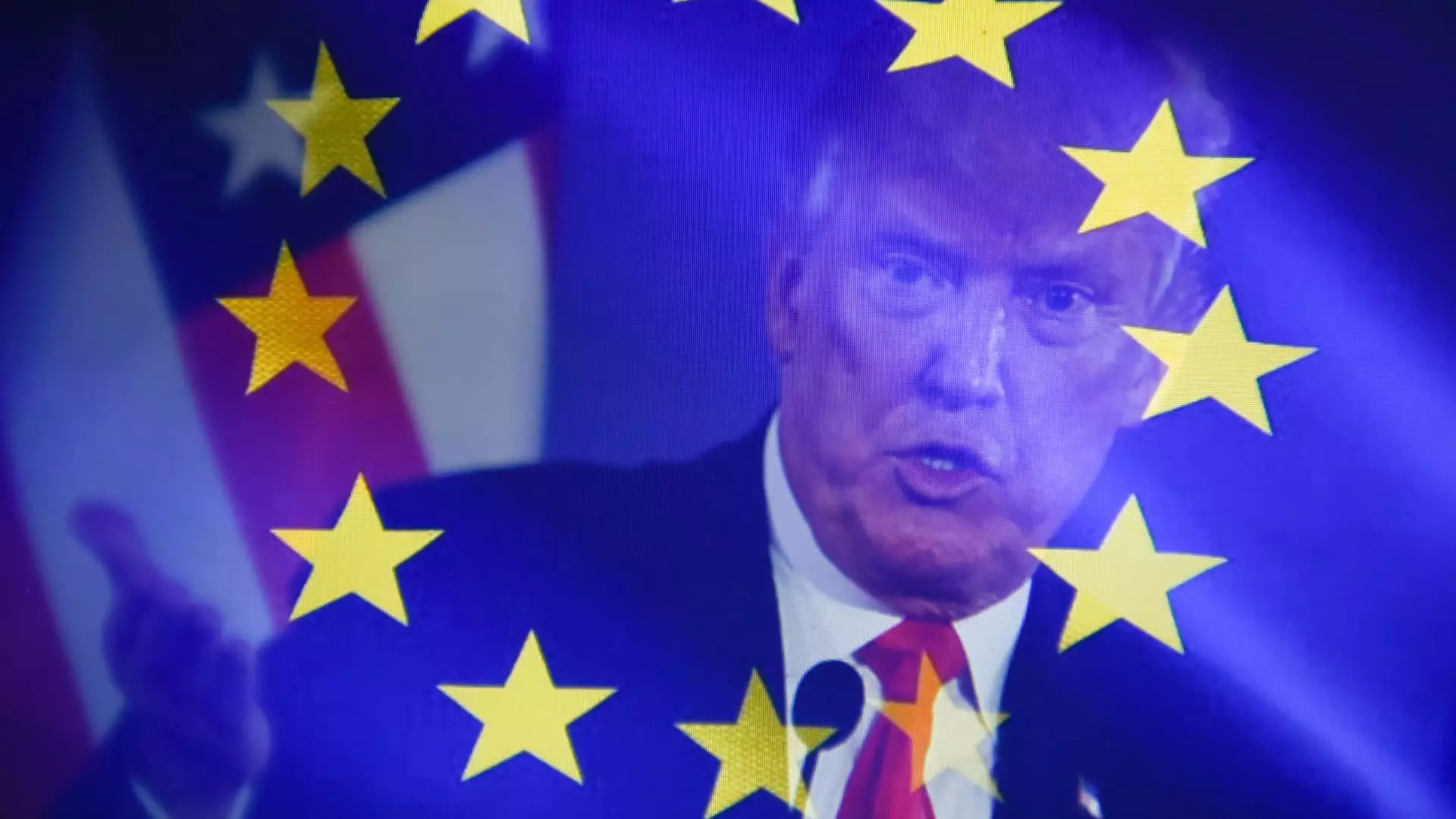In a striking development that highlights the capricious nature of international trade negotiations, the European Union has chosen to pause its retaliatory tariffs against a range of U.S. goods for a temporary period of 90 days. This decision, announced by European Commission President Ursula von der Leyen, comes in the wake of a similar gesture from the White House, which recently softened its aggressive stance on tariffs. While this may appear to be a diplomatic overture aimed at fostering dialogue between two major economies, it reflects a far deeper malaise—an inability to engage constructively in global trade discussions without resorting to punitive measures.
The recent escalation of tensions, dominated by U.S. tariffs on steel and aluminum, underscores the fragility of trade relationships in an increasingly interconnected world. The European Commission had prepared to impose counter-tariffs on a wide assortment of American products—including clothing, poultry, and machinery—yet the sudden pause seems less about genuine goodwill and more about a calculated stratagem to allow for negotiations to unfold. It raises the question: are both parties genuinely interested in resolving their differences, or are they merely postponing conflict?
The Illusion of Negotiation
President von der Leyen’s comments indicate a desire to give negotiations a chance, but skepticism lurks beneath the surface. The rhetoric surrounding trade talks is often fraught with contradictions. On the one hand, there’s a call for negotiation; on the other, a commitment to “all options remain on the table.” This duality makes clear that while both the EU and the U.S. may be attempting to avoid an all-out trade war, their fundamental approaches are at odds. As tariffs are portrayed as unjust taxes that ultimately harm businesses and consumers, one must wonder why these punitive measures are still part of the arsenal.
This hypocrisy is particularly disconcerting in light of the stark reality: tariffs disproportionately impact lower and middle-income consumers, making it increasingly difficult to justify their continued use. Von der Leyen champions the idea of a zero-for-zero tariff agreement—essentially a trade utopia—but the question remains as to how realistic such an idea is in the current climate. The diversion of focus towards retaliatory measures instead of constructive dialogue only perpetuates a cycle of dissatisfaction.
The Broader Economic Implications
Beyond the immediate implications for European and American economies, the trade skirmishes resonate globally. European markets buoyed by the prospect of easing tariff tensions see a fleeting hope through the lens of stock market recovery. Yet this optimism does little to mask the precarious position in which these economies find themselves. The volatile dynamics remind us that trade agreements should be rooted in cooperation rather than competition, lest the global economy continues to teeter on the edge of uncertainty.
Furthermore, the EU’s response to Trump’s tariffs—vowing to strengthen and diversify its trade relationships—offers a strategic counterweight. Rather than solely focusing on the U.S., the EU could benefit from exploring new partnerships, yet that requires stepping away from a reactive mindset. This approach of reducing friction in the single market is laudable and aligns with a more progressive economic philosophy; however, the overarching dependency on the U.S. market complicates this endeavor.
The Path Forward: A Call for Collaboration
Striving for healthier trade relations should not hinge solely on retaliatory measures. The narrative of “us versus them” undermines the potential for collaboration between nations. As both sides grapple with their grievances, the prevailing sentiment should shift towards empathy and understanding—recognizing that a healthy global economy relies on interdependence rather than isolationism.
While the temporary retreat from the brink of full-scale trade warfare might provide short-term relief, the long-term consequences of these policies loom large. It is time for leaders on both sides to re-envision trade negotiations not as battlegrounds, but as opportunities for mutual growth. The path forward calls for innovative solutions, harnessing collective resources to foster economic stability rather than indulging in antagonism that could fracture vital alliances. The stakes are high; the future of international trade warrants a far better outcome.


Leave a Reply